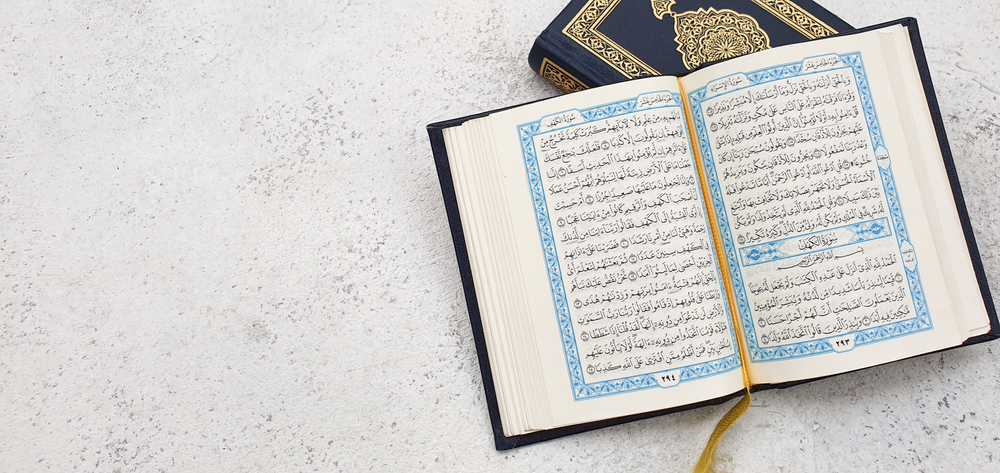Am I Sinful for My Incorrect Memorization of the Quranic Chapters?
Hanafi Fiqh
Answered by Shaykh Yusuf Weltch
Question
I recite sura Ikhlas and sura falaq every day multiple times but recently realized I have memorized them incorrectly. I don’t know how I have committed such a grave sin in memorizing two of the most important surahs for almost 40 years, and want to know if I will be punished for this?
I have had clinical depression for about ten years, and realizing that I have memorized these surahs incorrectly is making my depression worse. Please help me. I cannot describe the black hole of depression I feel when I think my recitation of these surahs has been rejected all these years.
Answer
In the Name of Allah, the Most Merciful and Compassionate
In short, No. You have not sinned at all, let alone a major sin.
Accidental Mistakes
The Messenger of Allah (may Allah bless him and give him peace) said, “Indeed, Allah has pardoned my community for mistakes, forgetfulness, and that which they are compelled to commit.” [Ibn Maja]
Good Opinions
It is of the utmost importance to maintain a good opinion of Allah Most High despite one’s deficiencies and despite one’s circumstances.
Part of this good opinion with Allah Most High understands the nature of Allah’s relationship with His believing servants.
The Nature of the Divine Relationship
The central role of Allah’s divinity and acting in this world is on the basis of mercy.
Allah Most High says, “it is the Most Compassionate, ˹Who is˺ established on the Throne (of Divinity).” [Quran; 20:5]
Many believe that Allah Most High is waiting for us to slip up so that He may punish us and throw us into the depths of Hellfire. Often this type of pessimism is inherited and adopted via one’s upbringing. This may occur if one is constantly being threatened that such and such act is Haram, that Allah will punish you if you do this, or Allah will cast you in Hell for this act.
We, as Muslims, affirm that Allah Most High has created Hellfire and that there will be people who are not pardoned and are then punished therein. However, we must understand what Allah Most High wants and intends for us.
The Divine Intent
Allah Most High explains what he wants and intends for us throughout the Quran.
Allah Most High says, “It is Allah’s Will to make things clear to you, guide you to the ˹noble˺ ways of those before you, and turn to you in mercy. For Allah is All-Knowing, All-Wise. And it is Allah’s Will to turn to you in grace, but those who follow their desires wish to see you deviate entirely ˹from Allah’s Way˺. And it is Allah’s Will to lighten your burdens, for humankind was created weak.” [Quran, 4:26-8]
In this verse, there are things that Allah Most High intends for His creation:
To make things clear
To guide to the noble paths of the righteous before us
To have mercy on us
To turn to us in grace
To lighten our burdens
Finding Balance
While trying our best to obey Allah Most High and His Messenger (may Allah bless him and give him peace), if we fall short or fall into sin, we turn back to Allah Most High in repentance, hoping for His mercy. Then we return to striving, and so on.
What we do not do is despair nor give up, and we do not hold bad opinions or assumptions about Allah Most High. We maintain optimism and strive for righteousness.
Hope this helps
Allah knows best
[Shaykh] Yusuf Weltch
Checked and Approved by Shaykh Faraz Rabbani
Shaykh Yusuf Weltch is a teacher of Arabic, Islamic law, and spirituality. After accepting Islam in 2008, he then completed four years at the Darul Uloom seminary in New York where he studied Arabic and the traditional sciences. He then traveled to Tarim, Yemen, where he stayed for three years studying in Dar Al-Mustafa under some of the greatest scholars of our time, including Habib Umar Bin Hafiz, Habib Kadhim al-Saqqaf, and Shaykh Umar al-Khatib. In Tarim, Shaykh Yusuf completed the memorization of the Qur’an and studied beliefs, legal methodology, hadith methodology, Qur’anic exegesis, Islamic history, and a number of texts on spirituality. He joined the SeekersGuidance faculty in the summer of 2019.
